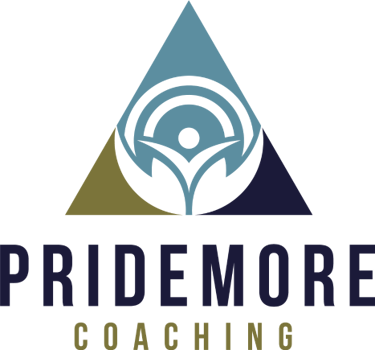Career Success: The Interplay of Personal Growth, Leadership, and Organizational Alignment
In this article, we explore this triad of success factors: We start with YOU - exploring the power of your abilities, aspirations, and attitudes. We also delve into the importance of personal branding, self-advocacy, and network efficiency in paving your path to success. Next, we underscore the pivotal role of leaders in shaping our career progression, both positively and negatively. Finally, we zoom out to look at the big picture—understanding the profound impact of organizational alignment.
Heather Pridemore
7/5/20233 min read


As we navigate the professional landscape, the pursuit of career success often seems like an elusive goal. However, it's important to realize that success isn't merely a stroke of luck or a matter of chance. Rather it's a deliberate process - one that involves a balance of three essential components: you, your supervisor, and the needs of the business.
A the forefront of the career success triad is the most vital element - YOU!
Your abilities, aspirations, and attitude set the foundation of your career trajectory. The key to professional growth lies in acknowledging and strategically deploying your personal strengths and skills. Embracing self-awareness and nurturing your inherent talents can significantly aid you in realizing your professional objectives.
Integral to this process is the cultivation of a strong personal brand. Your personal brand is a powerful tool - it's a blend of your professional expertise, personal values, and unique attributes that distinguish you from others in the workforce. It's your reputation that influences how colleagues, leaders, and industry peers perceive you. By consistently showcasing your intentional authenticity and competencies, and maintaining a strong, positive online and offline presence, you enhance your personal brand.
It's essential to self-advocate and communicate your value and ambitions confidently within your organization. By effectively articulating your achievements, setting boundaries, and expressing your career goals, you not only establish your credibility but also ensure that your contributions are recognized and rewarded appropriately.
Additionally, network efficiency is a key player in driving your career forward. Building meaningful relationships within and outside your organization can open doors to new opportunities. An active and efficient network can provide invaluable advice, diverse perspectives, and potential leads for career advancement. Being connected with the right people can be instrumental in expanding your professional horizons.
Thus, embracing continuous learning and personal development isn't merely about improving your skills or abilities - it's also about cultivating a robust personal brand, advocating for oneself, and nurturing an effective network.
The second pillar of career success lies in the hands of your supervisor.
The impact of their guidance, mentorship, and support on your professional journey cannot be overstated. A supervisor who believes in your potential can accelerate your career growth, providing invaluable insights and fostering an environment for personal and professional development.
However, it's essential to acknowledge that the opposite can also be true. A leader who fails to provide effective guidance, lacks commitment to your growth, or creates a negative work environment can be detrimental to your career progression. Such a supervisor can stifle innovation, dampen morale, and can often lead to a stagnant or even declining career trajectory. Their role in shaping your professional future is pivotal - it can either serve as a catalyst to propel you toward success or an obstacle hindering your professional evolution.
Despite this, remember that every experience, including negative ones, can serve as a valuable lesson. They can highlight areas for improvement and provide a clearer understanding of the type of leader you aspire to be or work for in the future.
The third and equally significant component are the needs of the business.
The role of the company in shaping your career path is profound. There has to be alignment between your career aspirations and the needs of the business. Understanding the needs, objectives, and financial capabilities of your organization can significantly impact your career trajectory and potential for professional growth.
Every organization has specific needs based on the strategic direction, industry trends, and financial health. Thus, it's essential to recognize that career growth opportunities within a company are fundamentally tied to these needs. You can't move into a position that the business doesn't require or can't afford to support. Aiming for a role that doesn't align with the company's objectives or budgetary constraints can lead to frustration and stagnation.
Successful career planning requires an understanding of how your professional goals align or divulge from the company's needs and objectives. This involves being attuned to the organization's strategic direction, understanding industry trends, and appreciating the financial implications of role creation or expansion.
Career success is a dynamic interplay of personal development, competent leadership, and company alignment.
This balancing act calls for regular effort, strategic planning, and a comprehensive understanding of your role within the broader business context. Remember that the trajectory of your career is essentially in your hands.
Contact:
(720)369-5735
Heather Pridemore, Founder | Coach


© 2023 Pridemore Coaching. All rights reserved.
Terms and Conditions
